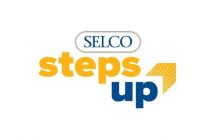This session legislators gave their approval to DEQ-related bills that cover truck idling, DEQ’s ability to better protect against invasive aquatic species, expansion of DEQ’s three-year-old E-waste program, expediting cleanup of properties contaminated with hazardous substances and the expansion of Oregon’s 40-year old bottle bill.
Truck idling bill – House Bill 2081
The bill restricts commercial vehicle idling to five minutes in a 60-minute period exempting emergency vehicles, loading and unloading among others. The bill preempts local government idling regulations except for those in existence on Jan. 1, 2011.
The Oregon Trucking Association and Oregon Environmental Council have agreed to work together on future legislation that would reduce idling near schools and discuss ways to reduce idling and improve aerodynamics as part of a statewide strategy for greenhouse gas reductions.
Invasive species bill – Senate Bill 81
SB 81 directs DEQ to collect a $70 per-trip fee from vessels regulated under the state’s new ballast water statutes, which go into effect Jan. 1, 2012. The money will improve the state’s ability to protect Oregon waterways from invasive species.
The bill funds a new half-time position that will allow DEQ to increase vessel inspections, technical assistance and outreach to the shipping and maritime industries to help prevent introduction of species harmful to Oregon’s aquatic habitat. DEQ will improve its monitoring for invasive species, focusing inspections on vessels that discharge their ballast water while in port.
E-waste bill – Senate Bill 82
SB 82 expands Oregon’s three-year-old electronics waste recycling program by adding “computer peripherals” and “printers” to the Oregon E-Cycles program by Jan. 1, 2015. Computer peripherals include keyboards or mice, whether corded or wireless. Printers include devices making reproductions or reproductions and some other function (copying, scanning, faxing, etc.).
Contaminated properties – House Bill 3325
This bill helps clarify questions about contaminated properties and their cleanup. It aims to reduce risks to hazardous substances while making idle properties productive again, thus helping create jobs and tax revenue.
The bill removes uncertainty over potential liability as a barrier to potential redevelopment projects by expanding protection from future lawsuits for “innocent purchasers.” The law defines innocent purchasers as parties not responsible for past contamination but committed under an agreement with DEQ to fund cleanup of their contaminated site. The bill allows DEQ to streamline its process for approving agreements with innocent purchasers.
Bottle bill – House Bill 3145
Oregon’s 40-year-old bottle bill program. DEQ monitors recycling of beverage containers and the program’s effectiveness while the Oregon Liquor Control Commission administers law.
The Oregon Bottle Bill has been effective in reducing litter and greenhouse gases through recycling. New additions to the law include:
— Containers eligible for a refund to include juices, teas, coffees and sports drinks. These containers become deposit refund-eligible one year after OLCC determines that at least 60 percent of beverage containers are returned to redemption centers or on Jan. 1, 2018, whichever comes first.
— Increases the 5-cent deposit to 10 cents after OLCC determines that, in each of two previous years, the number of containers returned was less than 80 percent of total number of beer, soft drink and water containers sold. OLCC cannot make this determination, under the law, prior to Jan. 1, 2016.
— Encourages development of additional “redemption centers” to provide convenient places for people to return containers besides participating grocery stores. OLCC will authorize a pilot project for a container redemption center operated by a distributor cooperative and serving a majority of retail dealers in an Oregon city less than 300,000 in population.




